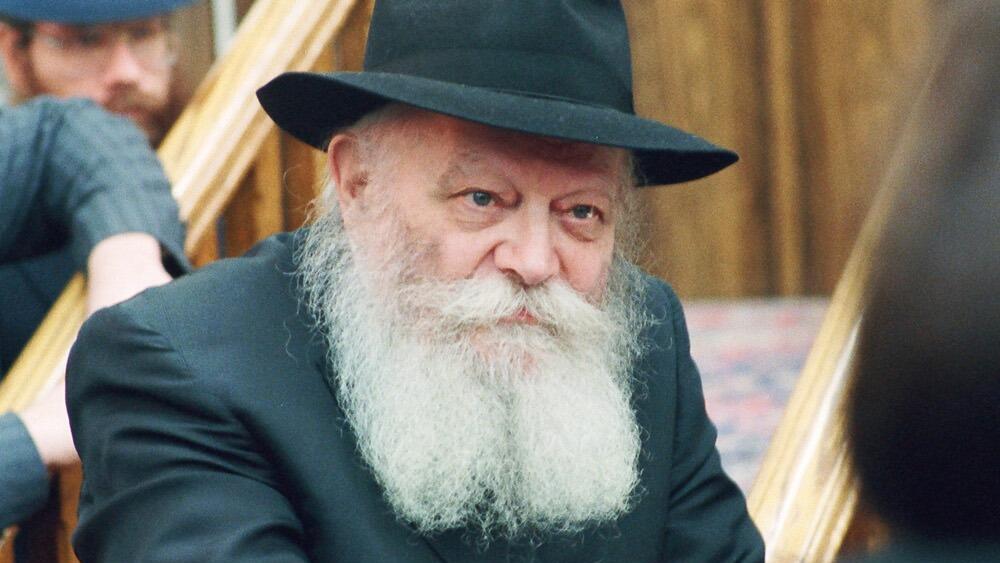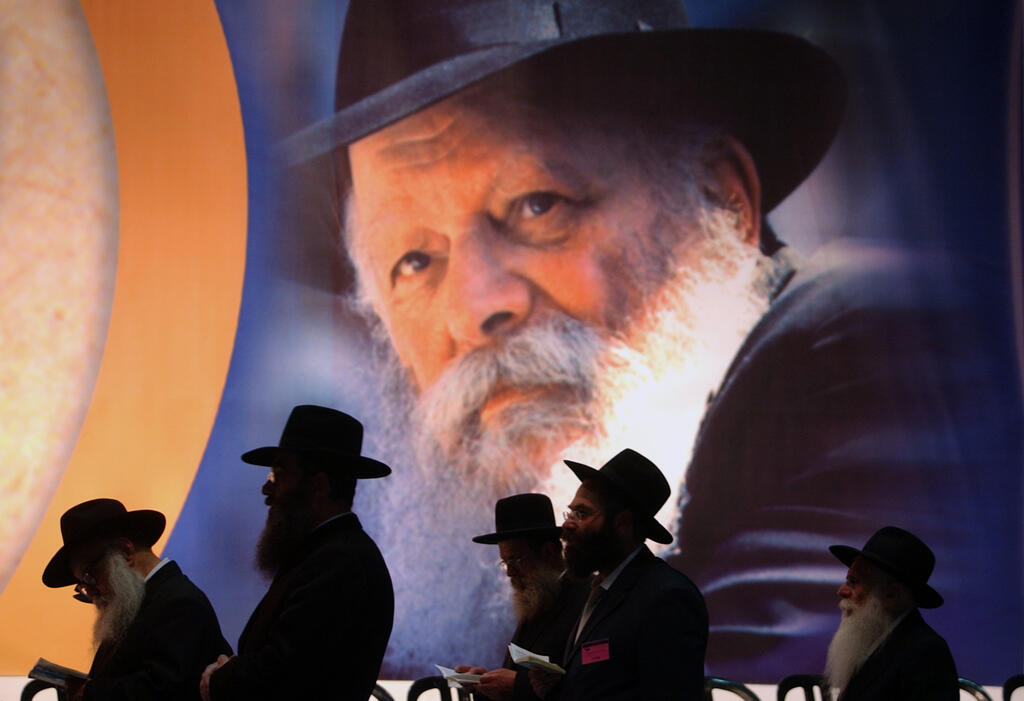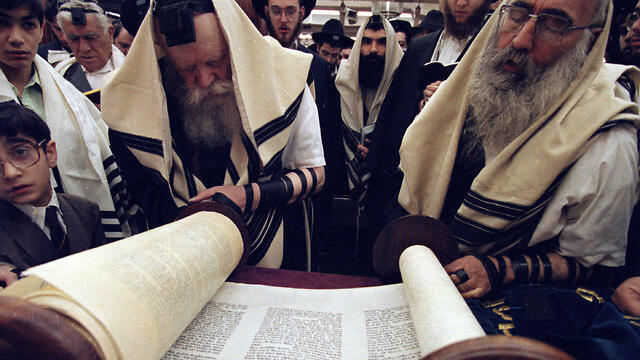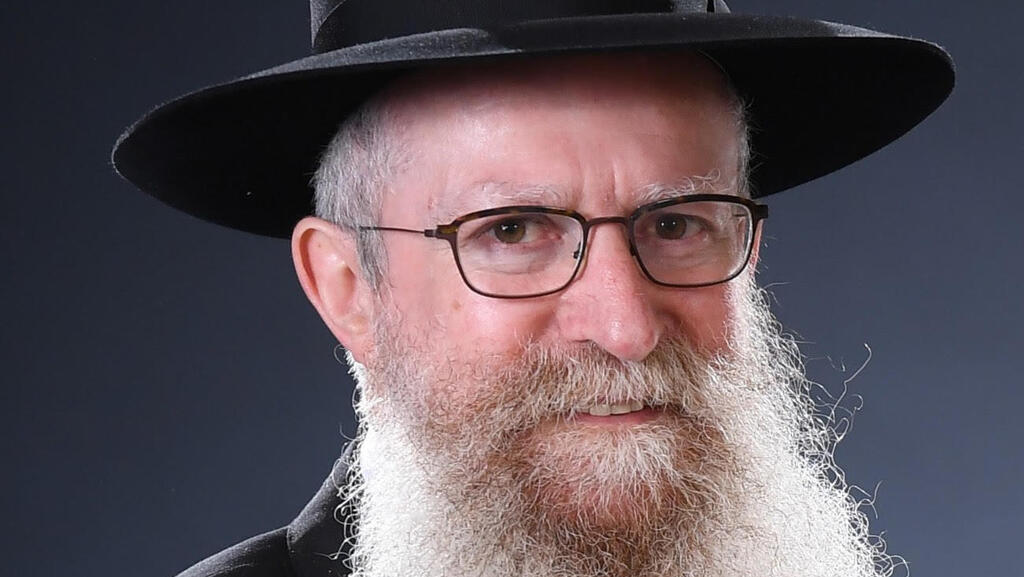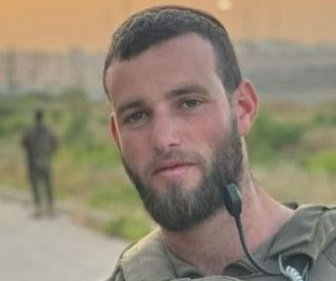Tuesday marks 30 years since the death of the Lubavitcher Rebbe, Rabbi Menachem Mendel Schneerson. Despite the fact that he did not appoint a successor, the Chabad movement continued to grow stronger thanks to Chabad emissaries who established new Chabad Houses in Israel.
This success and influence on Israeli society is surprising considering the movement’s fifth Rebbe, Rabbi Sholom DovBer Schneersohn, along with Rabbi Joel Teitelbaum, the leader of the Satmar Hasidic movement, were leading figures in the Haredi opposition to Zionism.
Rabbi Dr. Reuven HaCohen Oriah, who authored a book on the Lubavitcher Rebbe, said that even the sixth Rebbe of the Chabad movement, Rabbi Josef Isaac Schneersohn and his successor, the seventh and last Rebbe, opposed Zionism and the establishment of the State of Israel.
"The opposition stemmed, among other things, from the 'Three Oaths,' a prohibition mentioned in the Babylonian Talmud (Jewish religious law text) that seemingly prevents the Jewish people from acting to end their exile and establish Jewish sovereignty in the Land of Israel if it requires a struggle for its founding and survival," he said.
"Most ultra-Orthodox leaders advocated for waiting for a messianic redemption that would come at the end of days when the Jewish people are deemed worthy. Zionism, and later the State of Israel, offered an alternative that contradicted this stance and threatened Jewish religious identity,” he added.
"Therefore, Chabad, for example, doesn’t mark Independence Day as a holiday with religious significance, and the Lubavitcher Rebbe opposed the religious-Zionist view that sees Zionism, the State of Israel as a messianic process called 'Atchalta DeGeula' (the beginning of redemption). He argued this ideology is turning 'darkness into light' when in reality, we’re still far from redemption."
So how do you explain the Rebbe's meetings with senior Israeli politicians and his opposition to the return of territories in peace agreements?
"The Rebbe, unlike the anti-Zionist rabbis, made a clear distinction between the fundamental legitimacy of Zionism and state institutions and the population gathered in the Land of Israel, who deserve loving treatment like all other Jews in the world. The Rebbe argued that in Israel's current state, Jewish law requires an offensive intervention against enemies threatening the Jewish settlement,” he said.
"In contrast to Zionism which saw the end of the Jewish exile with the establishment of the State of Israel, the Rebbe created a parallel process. A movement that operates in worldly and natural ways, as outlined in Maimonides' 'Laws Pertaining to The Messiah.'
“The Rebbe stood at the head of this messianic process, promising an alternative redemption where the candidate to be the Messiah needs to lead 'the wars of Israel and win them' with the help of a Hassidic ‘army’ spreading Hassidic teachings 'outwards,' on which the coming of the Messiah depends."
The Rebbe didn't change, reality changed
In 2011, senior rabbis in Chabad attacked Rabbi Shimon Rosenberg, a Chabad envoy chosen to light one of the torches on the 63rd Independence Day. Rabbi Rosenberg, the father of Rivka Holtzberg who was murdered with her husband in the Chabad House attack in Mumbai in 2008, didn’t give in to pressure and participated in the ceremony, which brought him into conflict with the Hasidic movement.
Dr. Yehiel Harari, author of "The Secret of the Rebbe," believes that while the Rebbe didn’t change his stance towards Zionism, reality itself has changed instead. "The Rebbe's serious involvement in the State of Israel and his support for its development and prosperity didn’t stem from Zionist motives, in the usual sense of the term.”
“The Rebbe had a complex attitude toward Zionism. Like his predecessors, he didn’t accept the secular Zionist ideology, which sought to create the 'new Jew' and base Jewish identity on national symbols as a substitute for religious foundations. He obviously couldn’t support a secular movement that isn’t founded on Jewish thought and even explicitly alienates itself from it,” he added.
Dr. Harari stressed that "although the Israeli public prefers simple and easy-to-understand positions, the Rebbe of Lubavitch's attitude toward Zionism was complex. However, the shift in reality means that Chabad can be considered a movement that supports a different definition of Zionism, despite the Rebbes' opposition to it."
You said in the past that you thought Chabad could be defined as a Zionist movement.
"Zionism today is the recognition of our right to live in the Land of Israel within the framework of the state, and our ability to establish a moral society. We’re engaged in a lively and fascinating discussion about the nature of society, its boundaries, foundations, and the relationships within it.”
“In this aspect, anyone who doesn’t want to take part in the discussion and advocates segregation isn’t a Zionist. Chabad takes an active and lively part in the discussion about the state’s character and the justification for its existence, and is therefore certainly a movement that supports a certain Zionist view." Dr. Harari noted, however, that some members of the Hasidic movement don’t accept this position.
Neither damnation nor redemption
Rabbi Menachem (Mendy) Brod, who served as Chabad's spokesperson and published several books on the Rebbe’s teachings, also argues that reality has rendered the Rebbe's opposition to Zionism irrelevant.
"Ultra-Orthodox rabbis’ and the Rebbe’s opposition to Zionism was against the secular approach that sought to change the essence of the Jewish people and turn us into a nation like all others. The ideological debate with secular Zionism remains. According to the Rebbe, the State of Israel isn’t the redemption the Jewish people have been waiting for two thousand years, yet that doesn’t make it any less important and significant for the existence of the Jewish people in our time," he said.
How did the change occur?
"After the Holocaust, when it became clear that Israel is a refuge where Jews can find shelter and wars broke out against the British and later the Arabs, the previous Rebbe already began changing his approach, and the Lubavitcher Rebbe continued in his path. When it came not to the theoretical idea but the survival of the Jewish people, it was very important to the Rebbe that the State of Israel develop, strengthen, and be able to protect Jews.”
“Of course, he had expectations the state would also be a light to the entire Jewish people and perhaps even to humanity, as a model of how Jews live when given independence. The Rebbe wanted the State of Israel to be truly independent rather than doormat for every insignificant nation,” he added.
The struggle over ultra-Orthodox enlistment
Several Chabad members were killed in action during the war in Gaza, including Captain Israel Yudkin, 22, from Kfar Chabad.
Contrary to what most may believe, the vast majority of Chabad members didn’t enlist in the military but studied in yeshiva. After marriage, however, many enlisted in a shortened service route and joined the reserve forces.
"The Rebbe's thought yeshiva students should not serve in the army because their role is to study Torah," said Rabbi Brod. "The Rebbe noted that just as the military had an Air Force and an Education Corps, the Jewish people have a ‘Torah Corps’, where yeshiva students dedicate their entire being to Torah."
But the Rebbe didn’t support lifelong yeshiva studies as is common in the Hassidic Lithuanian movement.
"Correct. From his perspective, after studying in a yeshiva, they move on and also enlist. In the past 15 years, an arrangement has developed between the military and Chabad, allowing graduates of Chabad yeshivas to defer enlistment, go to study at the Rebbe's yeshiva in New York for a year or two, and then return to serve.”
The ultra-Orthodox parties still oppose even the enlistment of yeshiva students who aren’t studying.
"The situation is different in Chabad today. According to the rabbis, a boy who isn’t studying and is idling is bad. But although the number of enlistments has increased, the IDF still needs to improve its efforts to create a truly suitable framework for ultra-Orthodox soldiers. The more the army improves the frameworks intended for the ultra-Orthodox servers, the more their numbers will increase."


